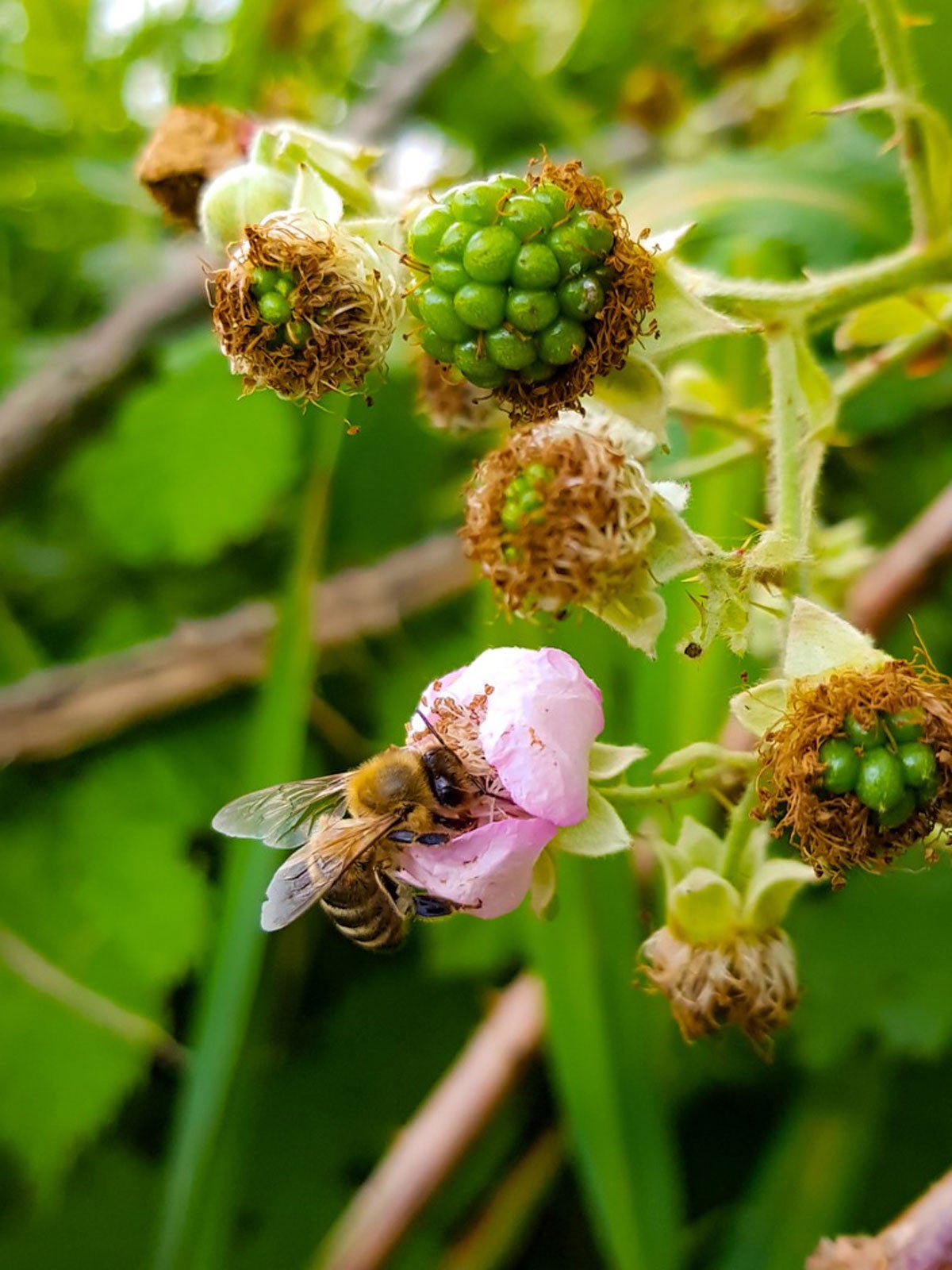Raspberry Plant Pollination: Learn About Pollinating Raspberry Flowers

Raspberries are absolutely delicious, but they are also somewhat miraculous. The miracle of their existence has to do with raspberry plant pollination. How are raspberries pollinated? Well, raspberry pollination requirements seem to be twofold, a raspberry plant and a pollinator, but the process is much more complex than it first appears.
It turns out that pollinating raspberry plants is somewhat of a natural wonder.
How are Raspberries Pollinated?
Raspberry blooms are self-pollinating; however, bees are responsible for 90 to 95 percent of pollination. Honeybees or solitary bees are solely responsible for pollinating raspberry bushes, and they have quite a job of it.
About Raspberry Plant Pollination
To comprehend how raspberries are pollinated and realize the complexity involved in pollinating raspberry bushes, you need to understand the structure of a raspberry flower. Raspberry flowers are not single blooms but rather comprised of 100 to 125 pistils. Each pistil must be pollinated to create a mature seed and resulting drupe.
It takes about 75 to 85 druplets to make a fruit. If all of the druplets are not pollinated, the fruit will be misshapen. This means forming a complete juicy raspberry takes a lot of visits from many bees.
Raspberry Pollination Requirements
So, for perfect pollination to occur, obviously you need a raspberry plant and some bees, but again, this is a simplistic explanation. Raspberry flowers have five petals and a ring of anthers. Each bloom has many ovules each with its own stigma. Once the ovules are fertilized, they are called druplets.
As mentioned, while the flowers are partially self-fertile, they benefit greatly from bee visitations. The amount of pollination the flowers receive directly affects the size and number of fruits on a bush.
Gardening tips, videos, info and more delivered right to your inbox!
Sign up for the Gardening Know How newsletter today and receive a free copy of our e-book "How to Grow Delicious Tomatoes".
The good news for raspberry fans is that the nectar produced by raspberry bushes is very attractive to bees, so usually pollinating raspberry bushes is not an issue. In commercial settings, when a lack of pollination is observed, farmers introduce more hives throughout the crop to facilitate raspberry plant pollination.
If you’re having issues with raspberry pollination in your garden, you can normally add more flowering plants to the garden to entice pollinators.

Amy Grant has been gardening for 30 years and writing for 15. A professional chef and caterer, Amy's area of expertise is culinary gardening.
-
 Looking For Plants To Give You The Soft And Fuzzies? Try These 5 Fuzzy Leaf Plant Options
Looking For Plants To Give You The Soft And Fuzzies? Try These 5 Fuzzy Leaf Plant OptionsLovers of texture, drama, silver foliage and tactile plants will adore these special sensory garden additions. These fuzzy leaf plant options will leave you all aglow
By Susan Albert
-
 Get Ready For A Summer Of Hummers! Grow These Full Sun Hummingbird Plants and Flowers
Get Ready For A Summer Of Hummers! Grow These Full Sun Hummingbird Plants and FlowersIf you’re lucky enough to enjoy a sunny backyard, make sure you are maxing out on your pollinator opportunities and grow these full sun hummingbird plants and flowers
By Tonya Barnett